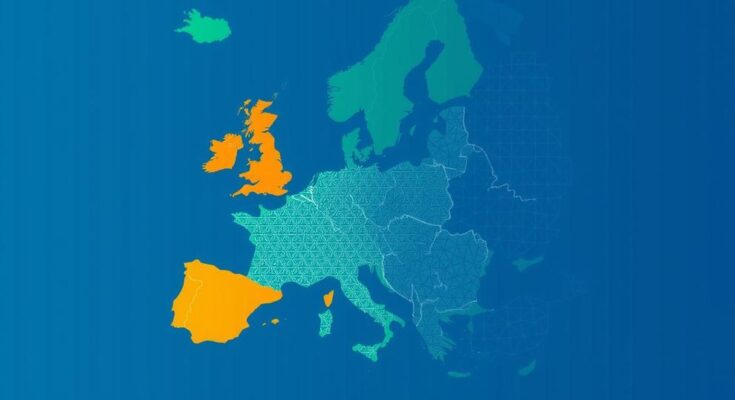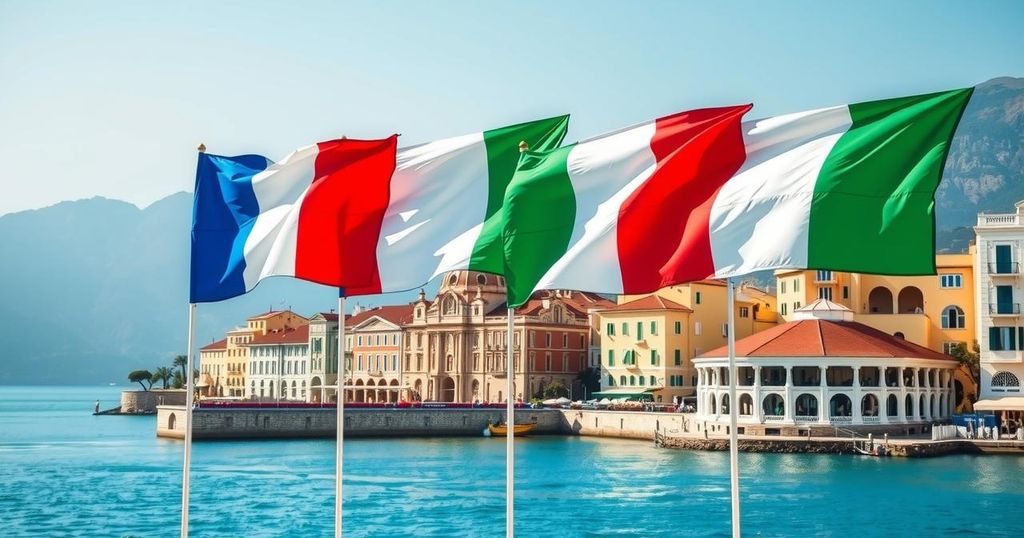At COP29 in Baku, the European Union plays a crucial role in securing a climate deal amidst political shifts, focusing on alliances with developing countries and committing to significant climate finance contributions while negotiating to increase annual funding for climate initiatives.
The European Union has emerged as a central actor in the negotiations for a pivotal climate deal at the UN climate talks in Baku, Azerbaijan. With shifting political landscapes following the election of climate sceptic Donald Trump in the United States, the EU is seen as a crucial link with both China and developing nations. The bloc’s envoys have been engaged in discreet discussions with Chinese officials while fostering alliances with countries from the global south, such as Kenya and Palau, reflecting a collective push towards ambitious climate action. This coalition-building is underscored by the EU’s significant contributions to global climate finance, which totaled 35.8 billion euros in the previous year. Such financing funds initiatives to aid developing countries in combating climate change. The EU’s commitment to achieving carbon neutrality by 2050, alongside notable historical greenhouse gas emissions, positions it as a key player in pushing for actionable climate measures. EU climate commissioner Wopke Hoekstra publicly reaffirmed the Union’s dedication, stating, “We will continue to lead, to do our fair share, and even more than our fair share, as we’ve always done.” However, some critics, such as Diego Pacheco of the Bolivian delegation, emphasized the necessity for Europe to assume a leadership role without passing the burden onto developing nations. With austerity measures complicating potential financial commitments, European nations face scrutiny over their willingness to invest further in climate initiatives. Some countries, including France and Germany, have begun to exceed expectations regarding contributions relative to their historical emissions and wealth, although others contend that Europe must do more to address its past reliance on fossil fuels. The ongoing discussions aim to secure additional funding, potentially increasing from the currently pledged $100 billion to between $200 billion and $400 billion annually. Negotiators are also advocating for a more extensive definition of financial contributions, ensuring transparency and acknowledging the investments made by countries like China. This is deemed vital to maintaining momentum towards 2030 climate goals amidst the backdrop of last year’s pledges.
The article addresses the critical role of the European Union in the UN climate talks, COP29, taking place in Baku, Azerbaijan. As the global climate narrative shifts, particularly following the U.S. political changes, the EU has sought to position itself as a mediator and leader in climate finance and negotiations. The emphasis on forming alliances with developing nations illustrates a strategic approach to fostering international collaboration. The ongoing discussions highlight the EU’s commitment to ambitious climate action whilst grappling with internal financial constraints amid calls for accountability in historical emissions.
In conclusion, the European Union’s actions during COP29 reflect both its commitment and the challenges it faces in spearheading global climate initiatives. Its role as a leading contributor to climate finance underpins its ambition to facilitate cooperation among nations amidst evolving political landscapes. The dialogue surrounding funding solutions, transparent contributions from all countries, and the necessity of leading by example underscores the importance of decisive and collaborative action in addressing the climate crisis.
Original Source: www.france24.com




